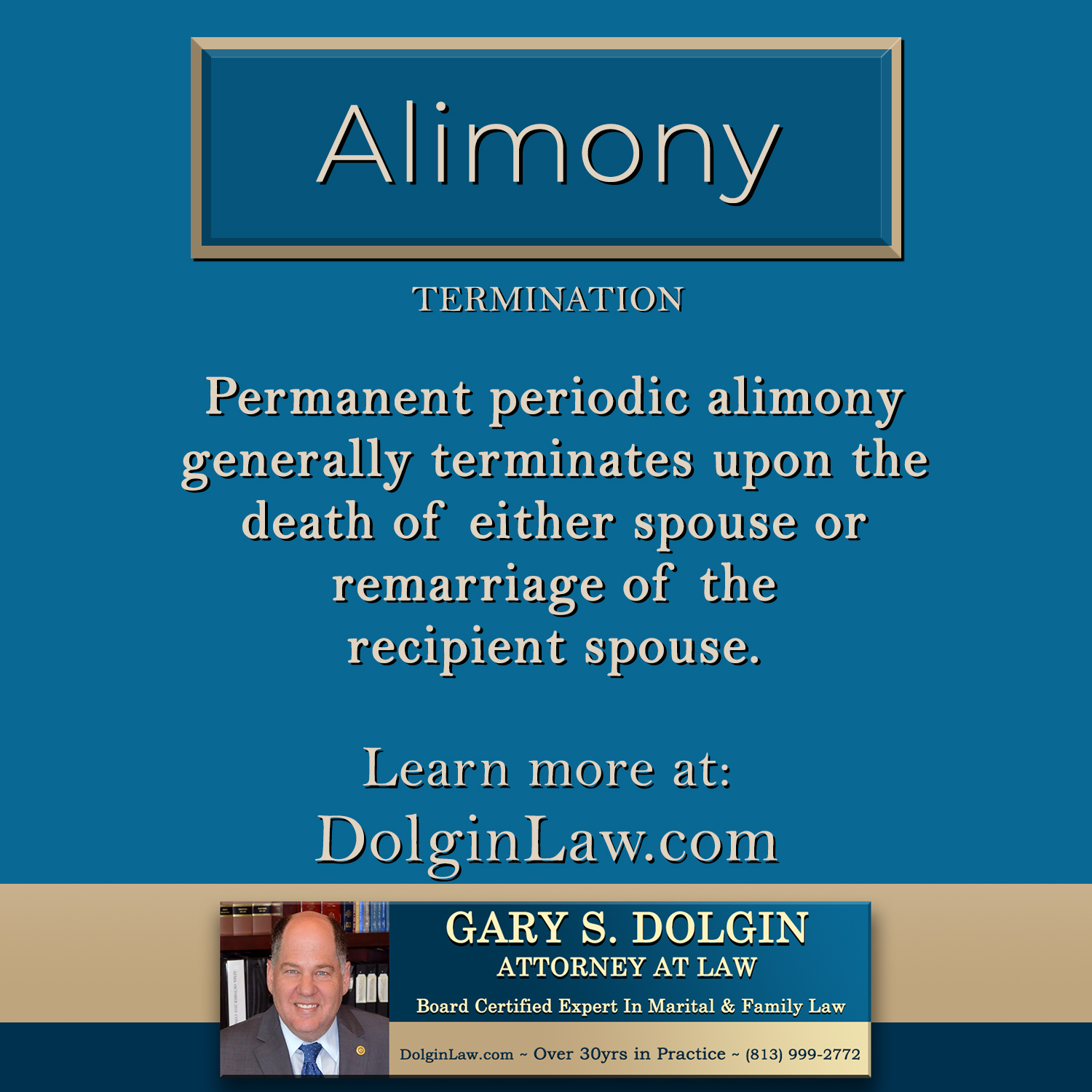Permanent periodic alimony generally terminates upon the death of either spouse or remarriage of the recipient spouse.
Upon agreement of the parties, however, the final judgment may provide for alimony to continue after the death or remarriage of the payor spouse.
To terminate permanent periodic alimony before these events, the petitioning party must show a substantial change in circumstances of one or both parties and that the circumstances were not present and contemplated at the time the final judgment of dissolution was entered.
Here at The Law Offices of Gary S. Dolgin, we will put our knowledge and 30 years of experience to work for you, whether you are seeking alimony or defending a claim against alimony.
Being Board Certified in Marital and Family Law as well as being a Supreme Court Certified Family Law Mediator sets Gary Dolgin apart. He will put his expertise to work for you and advocate for the best possible result in your alimony case.
To schedule an alimony consultation with Board Certified Expert in Marital and Family Law in Tampa, Gary S. Dolgin, please call (813) 999-2772, and it will be our pleasure to help you.
Learn more about alimony by visiting:
Alimony Modification Lawyer Tampa – Gary S. Dolgin










